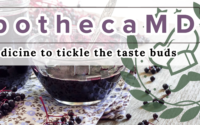The ameliorative effect of Moringa oleifera oil on tributyltin-induced brain toxicity in albino rats
Environ Toxicol. 2021 Oct;36(10):2025-2039. doi: 10.1002/tox.23320. Epub 2021 Jul 6.
ABSTRACT
Tributyltin (TBT) is an organotin compound widely used as a biocide in antifouling paints. Moringa oleifera oil (MOO) has a promising antioxidant potential, which necessitates further exploration. This study was conducted to investigate the potential protective effect of MOO against TBT-induced brain toxicity. The 30 rats were grouped into five groups (six each), Group I negative control, Group II positive control (vehicle), Group III MOO (5 ml/kg body weight [b.wt.]), Group IV TBT (10 mg/kg b.wt.), and Group V TBT & MOO. All treatments were given orally for 28 days. Thereafter, brains were exposed to oxidative stress and neurological parameters analyses. Histopathological and immunohistochemical (caspase-3, Bax, Bcl-2) examinations were also carried out. In rats administered TBT, increased malondialdehyde level, decreased reduced glutathione, and low total antioxidant capacity levels were in support of oxidative stress mechanism. Neurotoxicity was indicated by high nitric oxide level and increased acetylcholinestrase activity. Along with the histopathological alterations, the dysregulated expression of caspase-3, Bax, and Bcl-2 were indicative of the apoptotic mechanism mediated by TBT. Co-administration of MOO with TBT ameliorated the aforementioned toxic effects. In conclusion, TBT causes brain toxicity via oxidative, nitrosative, and apoptotic mechanisms. MOO demonstrates protective effect against TBT-induced brain toxicity mostly via potent antioxidant and antiapoptotic properties.
PMID:34227745 | DOI:10.1002/tox.23320

